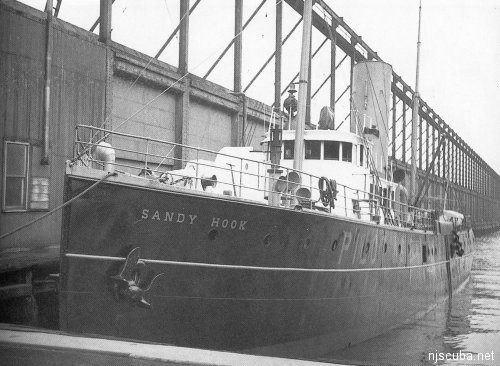Daily Weather Patterns

In a coastal area like New Jersey, the dominant winds are created by differential warming of the land and sea by the sun. Air warms over the hotter land and rises, and cool air from over the sea sweeps in underneath to replace it. These on-shore winds build over the course of the day, and so the waves they induce also build over the course of the day, then die down overnight.
I have found that the best diving conditions in New Jersey are either early morning or night. This is when the daily cycle of wave heights is at its lowest. Fortunately, the time restrictions on the inlets and beaches usually coincide with this.
Another factor that greatly affects wave height is wind direction. Winds from the north or west will tend to blow the waves down, while winds from the east or south have the opposite effect. Often a west wind will create a sweet spot right in-shore, in the "shadow" of the land. Winds over 20-25 knots from any direction are a bad sign.
For boat diving, your chances are better in the morning. In the afternoon heat, the winds and the waves build to their biggest proportions. Especially if you plan to go to a more distant site, do it in the morning, by afternoon it may be impossible. Often, the worst sea state of the day occurs in the late afternoon or dusk. Another common New Jersey weather pattern is the local afternoon thunderstorm. As the air begins to cool in the late afternoon, the chance of rain increases and New Jersey gets some first-rate thunder and lightning. This could ruin even a good day with nice flat seas.
All of this is the sort of thing that the weather forecast is useless in predicting. Of course, if there is a major storm pattern in the area, its effects will completely override these, but then you probably won't be diving anyway.

